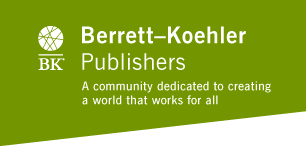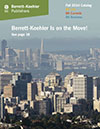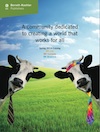Table of Contents
Introduction: New Confessions and Revelations from the World of Economic Hit Men, John Perkins - Economic hit men serve a small corporate elite whose influence is pervasive, no matter who wins formal elections, and whose goals are ever more profit and power: the preservation and extension of an empire. In Confessions of an Economic Hit Man John Perkins told the story of his own journey from servant of empire to advocate for oppressed and exploited peoples. Here Perkins links his experiences to new confessions and revelations in this book that reveal the dark side of globalization.
1. Global Empire: The Web of Control, Steven Hiatt - Third World countries pay more than $375 billion a year in debt service, twenty times the amount of foreign aid they receive. This system has been called a Marshall Plan in reverse, with the countries of the Global South subsidizing the wealthy North, even as half the world’s population lives on less the $2 a day. How does such a manifestly unjust system maintain itself? Steven Hiatt outlines the web of control—financial, political, and military—that maintains this system and explains why it’s so hard for Third World countries to escape.
2. Selling Money—and Dependency: Setting the Debt Trap, S. C. Gwynne - Rising oil prices created an oversupply of petrodollar deposits in international banks, and eager young bankers recycled this money into new loans to developing countries for dubious projects. Sam Gwynne traveled the globe on behalf of U.S. banks, helping ensnare Third World countries in debt.
3. Dirty Money: Inside the Secret World of Offshore Banking, John Christensen
- At least $500 billion in dirty money flows each year from poor countries into offshore accounts managed by Western banks, dwarfing the amount those nations receive in foreign aid. The sources of this money range from tax evasion, kickbacks, and capital flight to money laundering and drug trafficking. John Christensen was an offshore banker who found himself managing these secret accounts. He shows how the offshore banking system extracts tribute from countries that can least afford it and explains why this black economy has become essential to the international corporate elite.
4. BCCI’s Double Game: Banking on America, Banking on Jihad, Lucy Komisar -
The Bank of Credit and Commerce International (BCCI) was a useful tool for many powerful clients, ranging from the CIA and the Medellín cartel to Osama bin Laden, al-Qaeda, and influential figures in both the Republican and Democratic parties. When BCCI was finally shut down, as much as $15 billion had been lost or stolen—the biggest bank fraud in the world. Lucy Komisar reveals why banking authorities looked the other way for so long, and how BCCI’s allies in Washington were able to block any meaningful investigation.
5. The Human Cost of Cheap Cell Phones, Kathleen Kern - Civil strife in the Democratic Republic of Congo has cost 4 million lives in the last ten years, as militias and warlords fight over the country’s resources. The atrocities being committed in Congo have been funded, at least indirectly, by some of the biggest Western corporations. They see the country only as a source of cheap coltan—vital to making semiconductors—and other minerals. Kathleen Kern explores the direct relationship between the suffering of the Congolese people and the low prices Westerners pay for cell phones and laptops.
6. Mercenaries on the Front Lines in the New Scramble for Africa, Andrew Rowell and James Marriott
- Some 30 percent of America’s oil will come from Africa by 2015, and multinational oil companies are increasingly resorting to private armies to protect their operations there. Communities in the Niger Delta have been campaigning for a share of the oil wealth pumped from under their land. In 2006, Nigel Watson-Clark was working as a Shell security officer in Nigeria, protecting offshore oil rigs—a frontline soldier in the web of oil exploitation. Taken hostage during a raid by local militants, he found himself in the middle of the struggle for Nigeria’s oil.
7. Hijacking Iraq’s Oil Reserves: Economic Hit Men at Work, Greg Muttitt - While the Iraqi people struggle to define their future amid political chaos and violence, the fate of their most valuable economic asset, oil, is being decided behind closed doors. Oil production sharing agreements being forced on Iraq will cost the country hundreds of billions of dollars in lost revenue, while funneling enormous profits to foreign companies. Greg Muttitt uncovers a little-known Western foundation, the International Tax and Investment Center, that’s providing the hit.
8. The World Bank and the $100 Billion Question, Steve Berkman -
The World Bank has pushed a debt-based development strategy for Third World countries for decades. Hundreds of billions in loans were supposed to bring progress, yet the programs have never lived up to their promise. Instead, governing elites amass obscene fortunes while the poor shoulder the burden of paying off the debts. A former World Bank staffer, Steve Berkman presents an inside investigator’s account of how these schemes work to divert development money into the pockets of corrupt elites and their First World partners.
9. The Philippines, the World Bank, and the Race to the Bottom, Ellen Augustine -
“Development” and “modernization” became code words for U.S. efforts to prop up the regime of President Ferdinand Marcos, with the World Bank serving as a conduit for the financing of Marcos’ dictatorship. Some 800 leaked documents from the World Bank itself tell how the Bank financed martial law and made the Philippines the test case for its export-led development strategy based on multinational corporations—with disastrous results for both democracy and economic development.
10. Exporting Destruction, Bruce Rich - Export credit agencies have quietly become the world’s largest financial institutions, backing $788 billion in trade in 2004. Secretive and largely unregulated, they pursue a single mission: boost overseas sales of their countries’ multinational corporations. In doing so, they’ve become some of the dirtiest players in the EHM game, financing nuclear power plants in countries that can’t manage them and massive arms sales to strife-torn regions—all lubricated by billions of dollars in bribes. Bruce Rich looks at the secretive world of ECAs and the damage they cause around the world.
11. The Mirage of Debt Relief, James S. Henry -
G8 leaders have proudly announced $40 billion in debt relief for eighteen heavily indebted poor countries in Latin America and Africa—just over 1 percent of the $3.2 trillion that those countries owe. But the actual debt relief granted will be only a fraction of this small amount—and the strings attached to getting it make even this modest amount hardly worth getting: closed hospitals and schools, bankrupted local businesses, and high unemployment. James S. Henry delivers the analysis and outlines steps for an effective relief campaign for Third World debtor countries.
12. Global Uprising: The Web of Resistance, Antonia Juhasz - How do you fight—and change—a global system of exploitation? Antonia Juhasz argues that a better world is indeed possible, and finds the power we need to create it in the global justice (anti-corporate globalization) movement. Its agenda provides direction, empowerment, and—most important—hope that we can and will break the empire’s web of control.
 0 items in cart
0 items in cart









